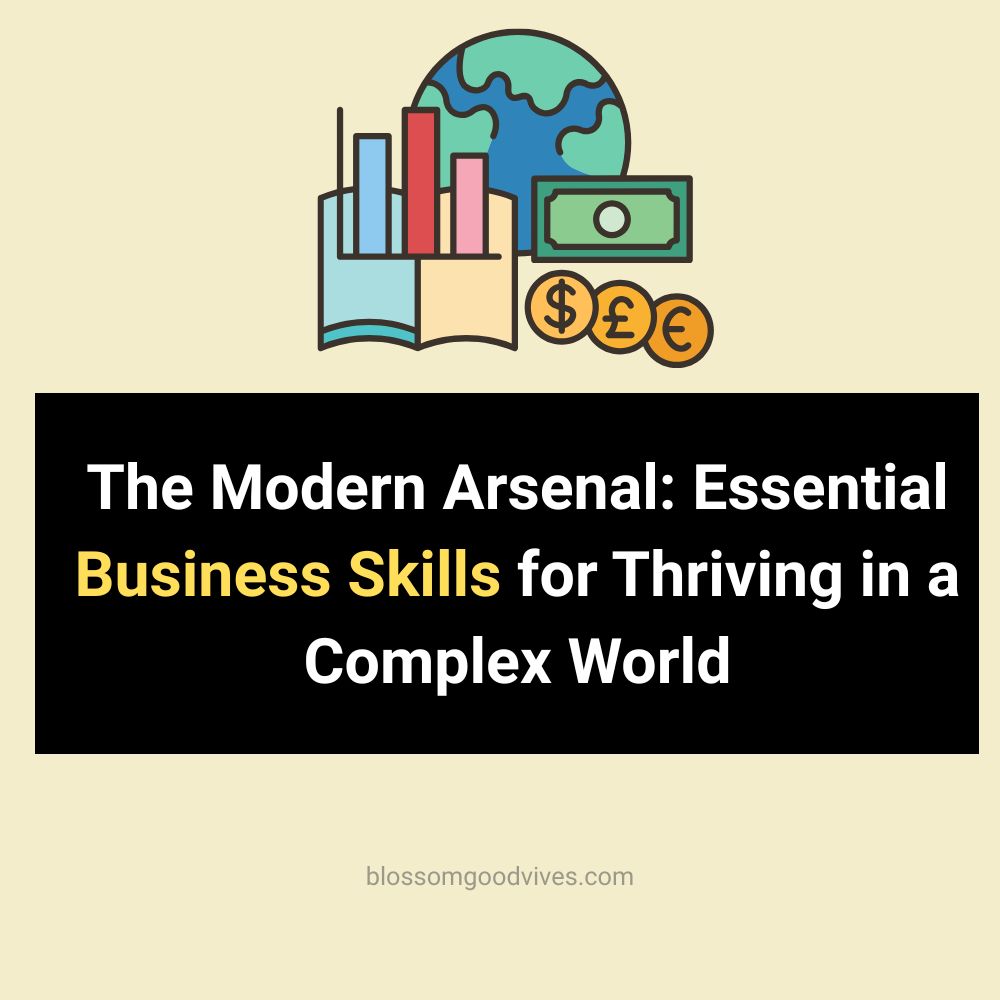
The landscape of business system is not what it was a decade ago. It’s faster, more global, more digital, and infinitely more complex. While an MBA or a brilliant idea might open a door, it is a core set of fundamental skills that determines whether you will merely survive or truly thrive within that room. These skills are the currency of success, the tools that translate vision into reality, and the bridge between individual talent and collective achievement.
This article explores the essential business skills—a blend of the timeless and the new—that every professional, from aspiring entrepreneur to seasoned executive, must cultivate to navigate the challenges and seize the opportunities of the modern economy.
The Foundational Trio: Skills That Never Expire
Before delving into digital-age capabilities, three classical skills form the unshakable foundation of all business success. They are as relevant today as they were a century ago.
1. Strategic Thinking and Problem-Solving
Business, at its heart, is about solving problems—for customers, for operations, and for the market. Strategic thinking is the ability to see beyond the daily task list and understand the broader context.
What it looks like: It’s moving from “What is the problem?” to “Why is this a problem?” and finally to “What is the best possible solution among many alternatives?” It involves analyzing data, anticipating market shifts, understanding competitive dynamics, and making decisions that align with long-term goals rather than short-term convenience.
How to hone it: Constantly ask “why.” Challenge assumptions. Practice analyzing case studies. Play strategy games. Learn to model different scenarios and their potential outcomes before making a decision.
2. Financial Literacy
You cannot steer a ship without understanding the navigational instruments. Similarly, you cannot guide a business—or your career within one—without understanding the financials. This is not about becoming a CPA; it’s about fluency in the language of business.
What it looks like: It’s the ability to read and interpret core financial statements—the Income Statement (Profit & Loss), Balance Sheet, and Cash Flow Statement.
Understanding key metrics like gross margin, net profit, EBITDA, and burn rate allows you to see the true health of an organization and make informed decisions based on economic reality, not just gut feeling.
How to hone it: Take an online course in accounting fundamentals. If you’re in a company, ask your finance manager to walk you through the quarterly reports. Manage a budget, even for a small project.
3. Effective Communication
This is the superpower. Brilliant ideas are worthless if they cannot be persuasively conveyed. Effective communication is a multi-layered skill encompassing writing, speaking, listening, and presenting.
What it looks like: It’s the ability to distill complex information into a clear, concise, and compelling message tailored to your audience—whether it’s a one-line email, a project proposal, a pitch to investors, or a motivational speech to your team. Crucially, it also involves active listening, ensuring you truly understand others before seeking to be understood.
How to hone it: Write more. Seek feedback on your presentations. Join a group like Toastmasters. Practice active listening in every conversation by summarizing what you’ve heard before responding.
The Modern Mandate: Skills for the Digital Age
The foundational skills are now powered and amplified by a new set of capabilities demanded by today’s world.
4. Data Literacy and Analytical Reasoning
In the age of Big Data, intuition is no longer enough. Every professional must be able to work with data.
What it looks like: It’s not necessarily about being a data scientist who builds complex algorithms. It is about knowing what data is relevant, how to interpret it, and how to use it to tell a story and support an argument. It means asking the right questions of the data and being skeptical of findings that seem off.
How to hone it: Familiarize yourself with basic data visualization tools like Tableau or Microsoft Power BI. Use Excel or Google Sheets to perform pivot tables and basic analysis. Take a course on data-driven decision-making.
5. Emotional Intelligence (EQ)
As automation handles more technical tasks, human skills become our greatest differentiator. EQ is the ability to recognize, understand, and manage your own emotions, as well as to recognize, understand, and influence the emotions of others.
What it looks like: It’s self-awareness to manage your stress, empathy to understand a colleague’s perspective, and social skill to manage conflict, build rapport, and lead with compassion. It is the bedrock of strong teamwork, leadership, and client relationships.
How to hone it: Solicit honest feedback on your interpersonal skills. Practice mindfulness to improve self-regulation. Make a conscious effort to see situations from another person’s point of view before reacting.
6. Adaptability and a Growth Mindset
The only constant in business is change. Technologies evolve, markets fluctuate, and consumer preferences shift overnight. The ability to learn quickly, unlearn outdated practices, and relearn new ones is critical.
What it looks like: It’s embracing challenges instead of fearing them. It’s viewing failure not as a indictment of your ability, but as a learning opportunity. It’s being curious and proactively seeking out new skills and knowledge.
How to hone it: Step outside your comfort zone regularly. Take on projects that scare you a little. Dedicate time each week to learning—listen to podcasts, read industry reports, or take an online course on an unfamiliar topic.
7. Digital Acumen
Regardless of your role or industry, understanding the digital landscape is non-negotiable.
What it looks like: It’s a functional understanding of the digital tools that power modern work (e.g., CRM systems, project management software like Asana or Jira, communication platforms like Slack). It also involves a broad awareness of transformative technologies like AI, blockchain, and cloud computing and how they might impact your business.
How to hone it: Experiment with new software. Read tech news. Don’t be afraid to click buttons and see what happens in a new program.
The Synthesis of Success
No single skill operates in a vacuum. The magic happens in the synthesis. A strategically sound decision (Skill #1) is made stronger by financial analysis (Skill #2) and communicated persuasively (Skill #3) to a team whose buy-in is secured through empathy (Skill #5). This decision is informed by data (Skill #4) and will be adapted as needed in the future (Skill #6) using the latest digital tools (Skill #7).
Investing in these skills is an investment in your own professional resilience and value. They are the tools that will allow you to build, lead, innovate, and succeed—no matter what the future of business holds.
